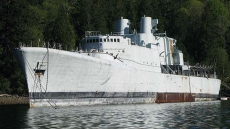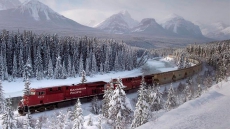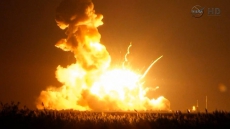CALGARY — When it comes to figuring out how much pain tumbling crude prices are going to inflict on the oilpatch, one investment strategist says it's not so much a question of how low oil will go, but of how low for how long.
"You don't really know at this point how it's going to turn out," said Kara Lilly, with Mawer Investment Management in Calgary. "You just want to be resilient no matter what."
A barrel of U.S. benchmark crude oil settled at US$48.36 on Friday, less than half of where it was just six months ago. The price weakness has already caused widespread cuts in the oilpatch, with drilling budgets being sliced and producers leaning on their service providers to sharpen their pencils. The spectre of job losses looms.
But a big deciding factor on how well the oilpatch will fare is how long the doldrums will last. If it's a prolonged downturn — two years or longer, give or take — it could get uglier for energy players, according to Lilly.
While established oilsands projects are in good shape, expansions to existing developments depend on a long-term oil price of around US$70 — higher for ones being built from scratch.
"What ultimately matters for the oilsands group will not be are oil prices low at US$50 for the next month, but are oil prices going to stay low for the next two years and that's what they're really going to feel a bigger impact," she said, adding the prospect for pipeline expansions gets dicey in the latter scenario, too.
"If it's only a short blip, then they can manage."
It's going to get worse before it gets better, said Scott Smith, a market analyst with Cambridge Mercantile Group in Calgary.
"We're likely to see further revisions to (capital expenditures) and we'll likely see headcounts starting to fall too," he said.
"It's definitely belt tightening time in Western Canada and for the oilsands — not even just highly leveraged speculative plays, but also for the majors and oil services firms."
On a national basis, it will be a little while before the manufacturing sector, which benefits off of a low loonie and lower fuel costs, starts to pick up some of the slack, said Smith.
"As headcounts start to come down and labour markets soften out west, that's going to be a negative position for the overall Canadian economy in the short-term before we see some rebalancing in the eastern manufacturing sector."
Smith is expecting to see a pullback in the oilsands until operators have some sense of where things are going and can feel comfortable planning to spend big bucks on new projects.
"Sometimes it would make sense to look at a project if you only have to take a year or two of losses for a longer term benefit," he said. "But a lot of the investment will be held off or stopped altogether."
Not only are crude prices low now, but long-term softness is evident in crude futures contracts, said Andrew Botterill, senior manager of consulting firm Deloitte's resource evaluation and advisory business.
The January 2016 contract on the CME shows West Texas Intermediate futures are sitting around US$56 a barrel.
At the end of last year, Deloitte forecast 2015 crude prices to average US$67 a barrel, but it's looking more like the low 60s based on developments over the past few weeks.
It's the longer term weakness that leads Botterill to conclude there could be downward revisions in companies' crude reserves.
Reserves are a key measure for oil and gas companies. Outside firms are hired to evaluate not only how many barrels of crude lie in the ground, but what proportion of it is technologically possible to extract and how much of it is economically feasible to develop.
"Where prices are going to be two, five and 10 years from now is where economics can really trim off what you thought would be an economic reserve," said Botterill.
Botterill draws parallels between the latest crude downturn, driven largely by a glut of shale oil in the United States, and the pain natural gas producers experienced in 2008 and 2009, which was also the result of burgeoning supplies without enough demand to keep pace.
"Supply and demand fundamentally shifted in natural gas back then," said Botterill, who predicts the eventual recovery for oil will be a "slow, methodical march" like it was for gas.





